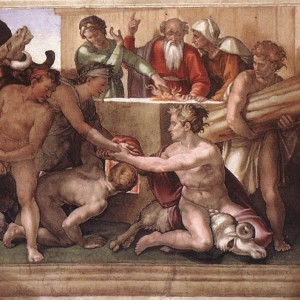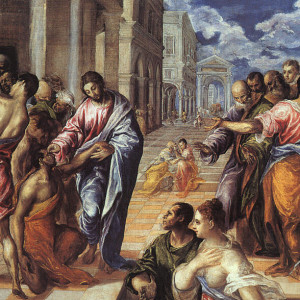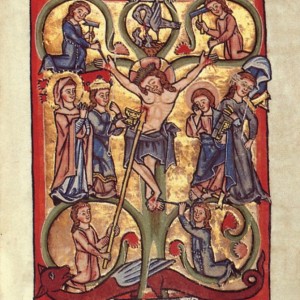It was through wood that we fell, and it is through wood that we have been redeemed. It goes back to Adam and Eve. The Fall of Man happens after the serpent tempts them into eating from the fruit of the forbidden tree. But from the very moment of the Fall, we’re promised that sin and rebellion aren’t the end of the story.
God promises that a Redeemer will come who will crush the serpent, Satan, underfoot. And the passage in Genesis ends with a tantalizing clue: an angel with a fiery sword is sent to guard the Tree of Life, lest man eat of it and live forever. Salvation, eternal life, will come through the tree, but we can’t reach it on our own.









